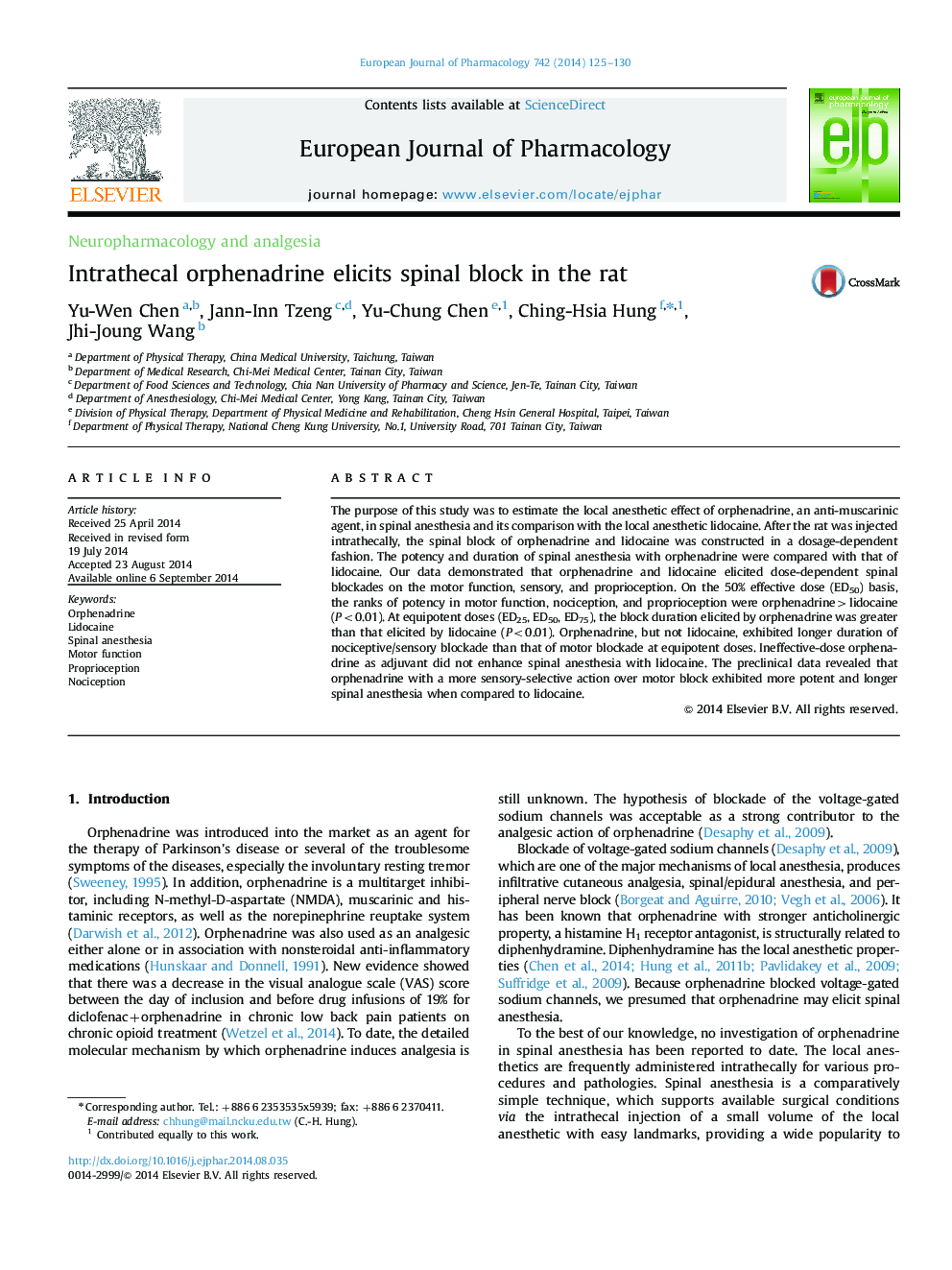| Article ID | Journal | Published Year | Pages | File Type |
|---|---|---|---|---|
| 5827755 | European Journal of Pharmacology | 2014 | 6 Pages |
Abstract
The purpose of this study was to estimate the local anesthetic effect of orphenadrine, an anti-muscarinic agent, in spinal anesthesia and its comparison with the local anesthetic lidocaine. After the rat was injected intrathecally, the spinal block of orphenadrine and lidocaine was constructed in a dosage-dependent fashion. The potency and duration of spinal anesthesia with orphenadrine were compared with that of lidocaine. Our data demonstrated that orphenadrine and lidocaine elicited dose-dependent spinal blockades on the motor function, sensory, and proprioception. On the 50% effective dose (ED50) basis, the ranks of potency in motor function, nociception, and proprioception were orphenadrine>lidocaine (P<0.01). At equipotent doses (ED25, ED50, ED75), the block duration elicited by orphenadrine was greater than that elicited by lidocaine (P<0.01). Orphenadrine, but not lidocaine, exhibited longer duration of nociceptive/sensory blockade than that of motor blockade at equipotent doses. Ineffective-dose orphenadrine as adjuvant did not enhance spinal anesthesia with lidocaine. The preclinical data revealed that orphenadrine with a more sensory-selective action over motor block exhibited more potent and longer spinal anesthesia when compared to lidocaine.
Related Topics
Life Sciences
Neuroscience
Cellular and Molecular Neuroscience
Authors
Yu-Wen Chen, Jann-Inn Tzeng, Yu-Chung Chen, Ching-Hsia Hung, Jhi-Joung Wang,
